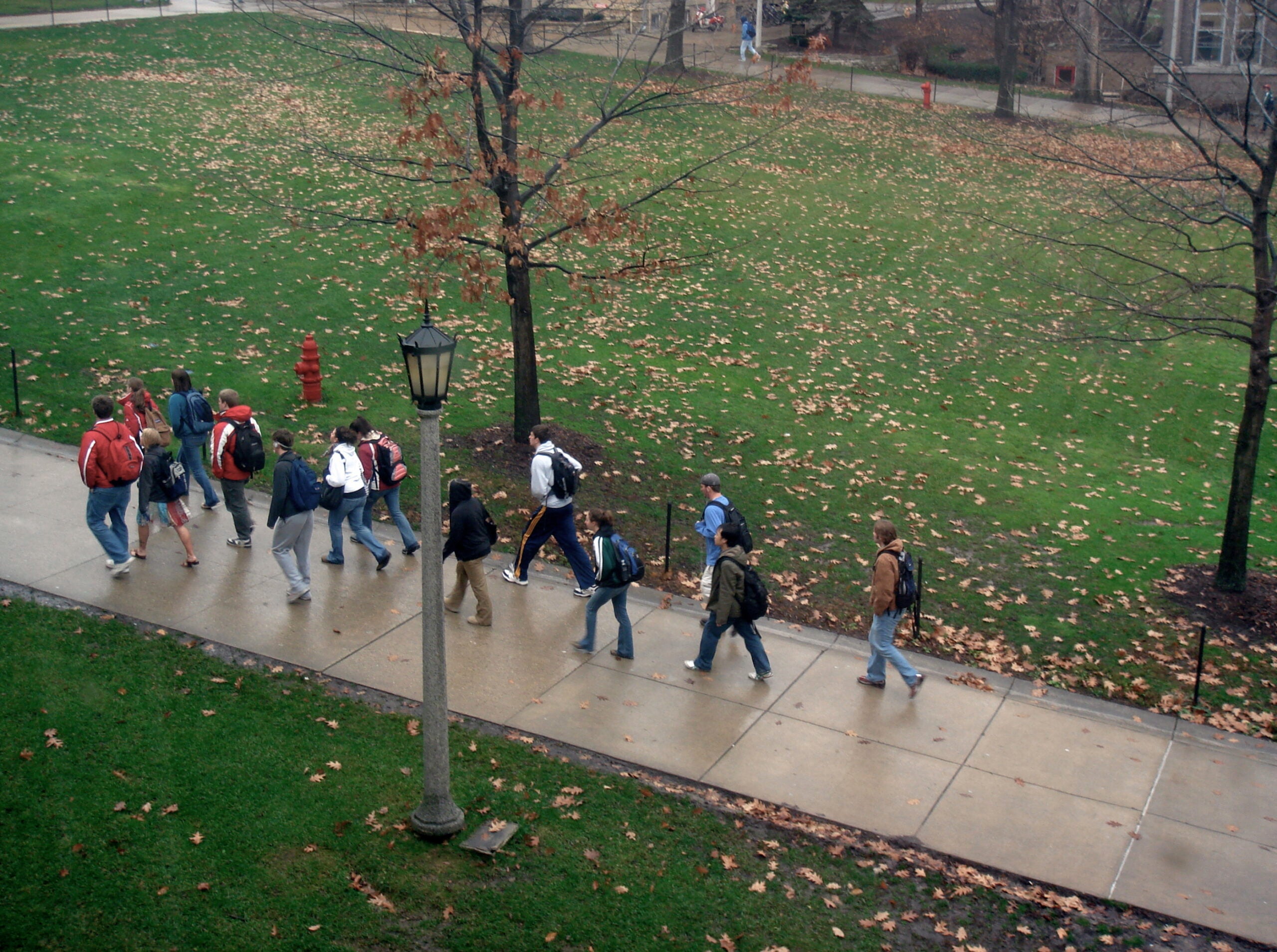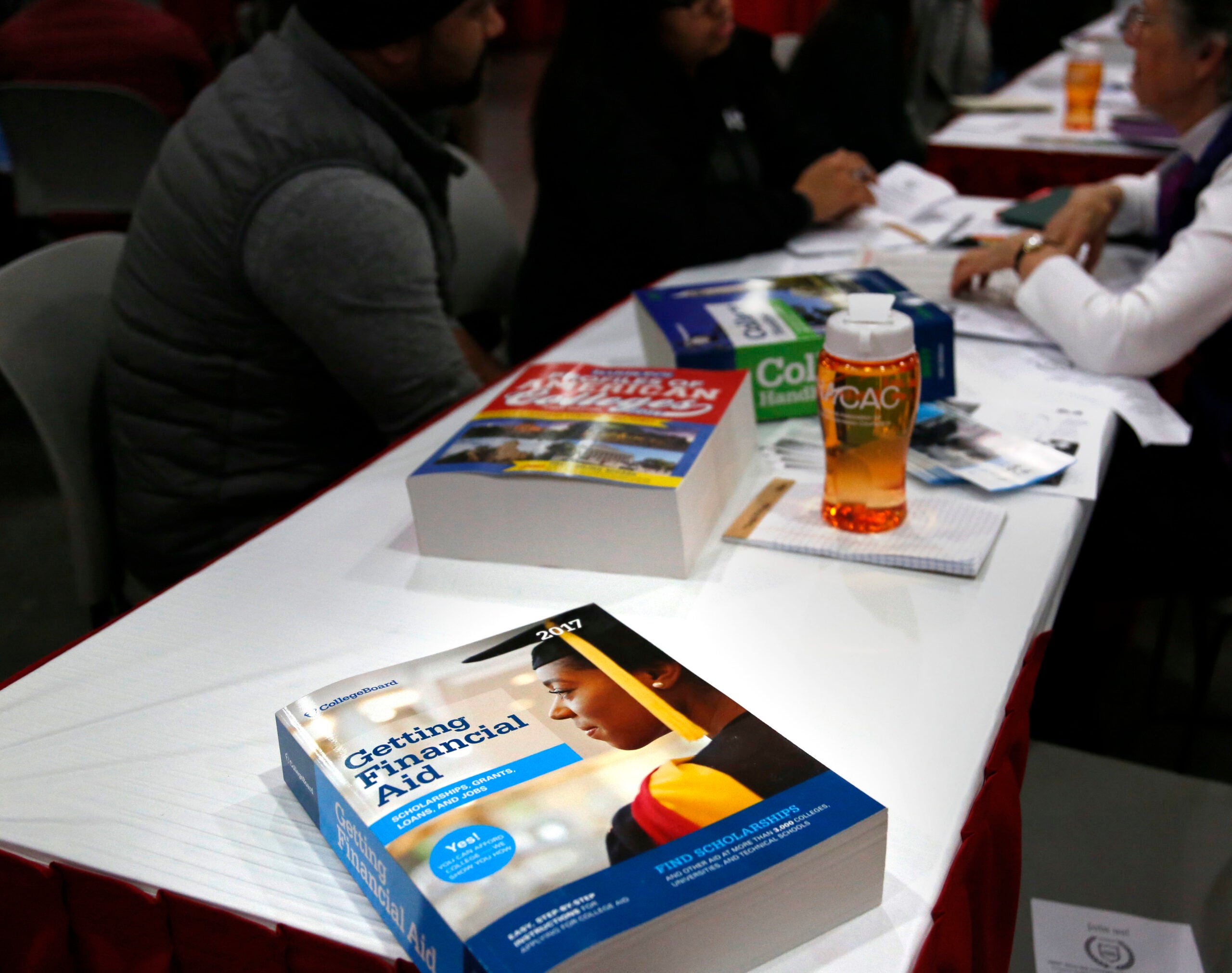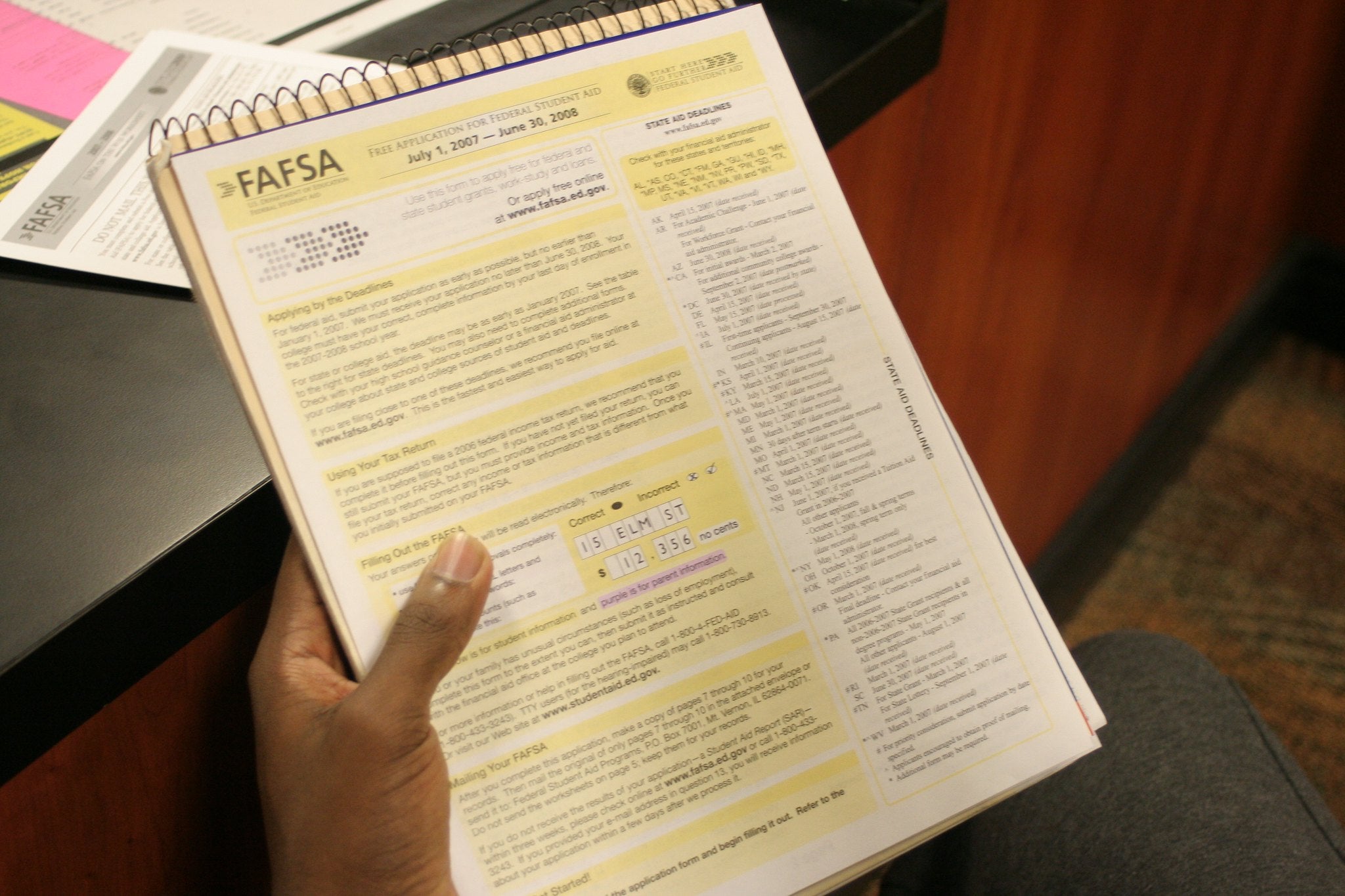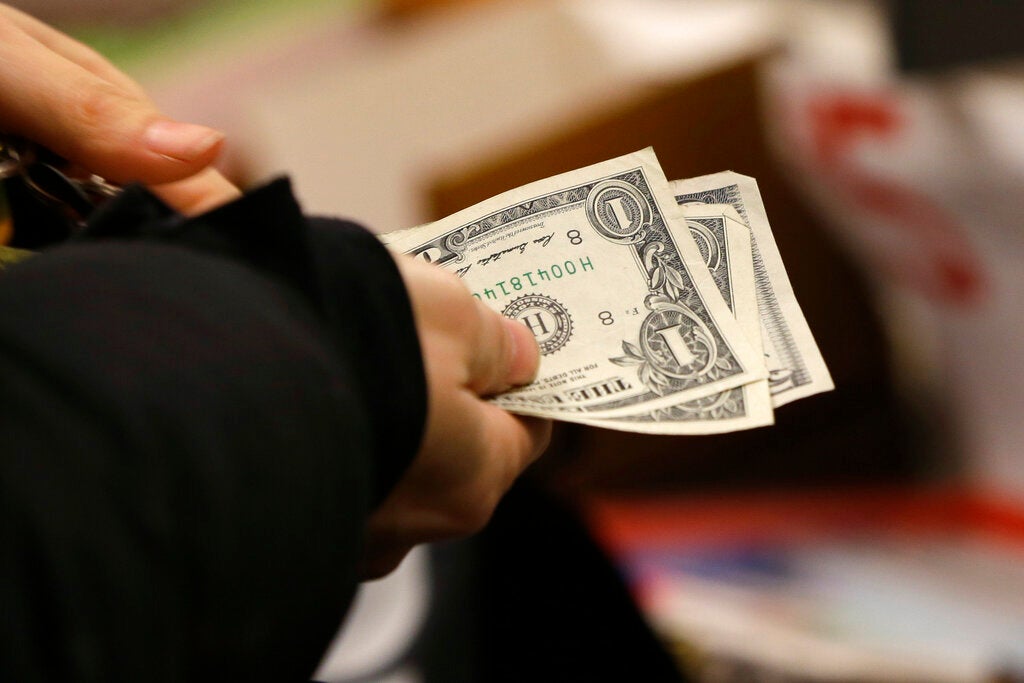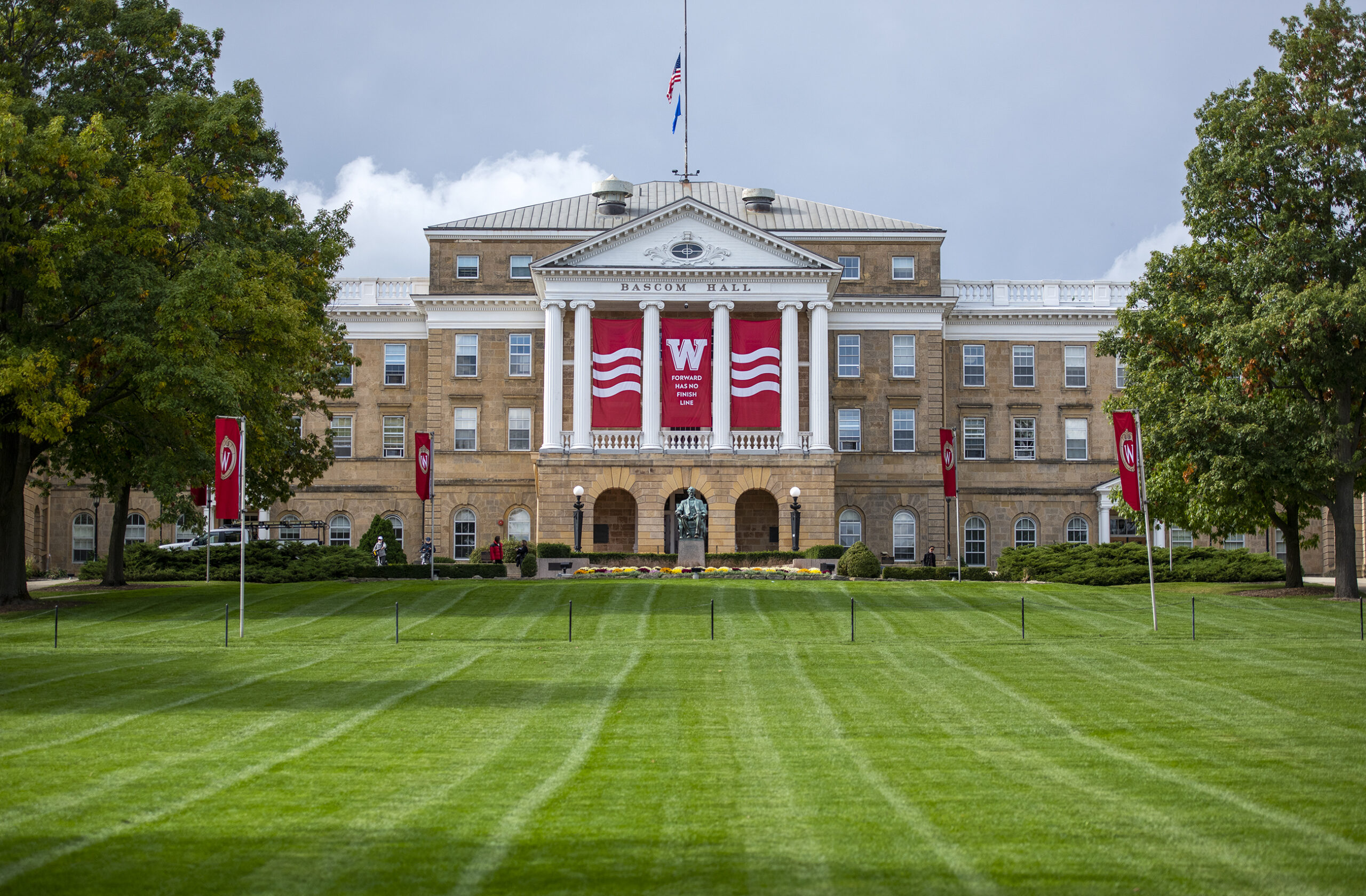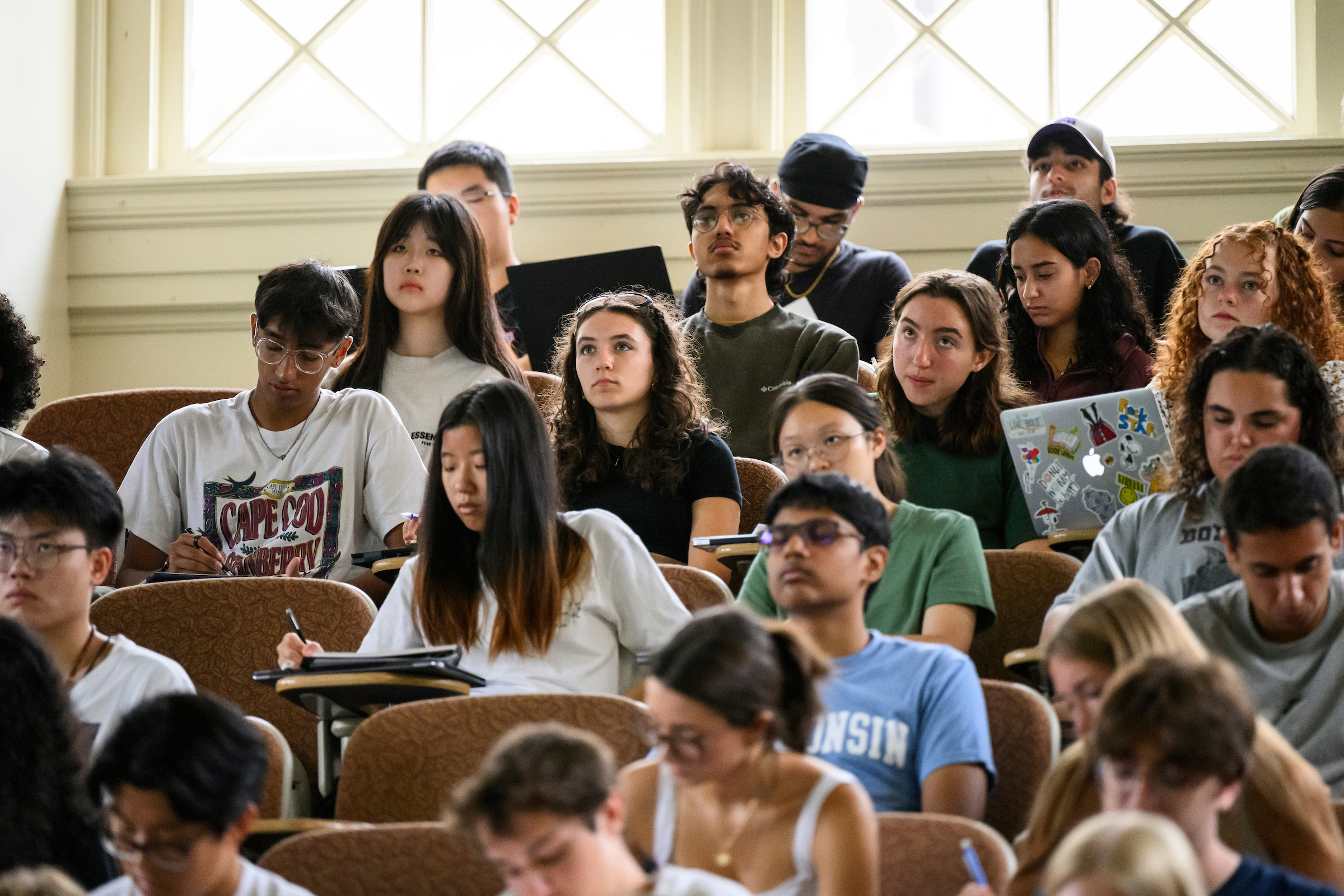The long-time federal Perkins Loan Program for college and university students expired at the end of September after a two-year extension in 2015. Higher education officials fear the end of the program could mean a gap in financial aid for low-income students.
The program offers low-interest loans of up to $5,500 each year to students most in need. Last year, public and private universities in Wisconsin awarded 27,513 loans worth roughly $60.5 million, according to the National Association of Independent Colleges and Universities.
Donna Dahlvang, director of financial aid at the University of Wisconsin-Superior, said the program’s end could put more pressure on financially strapped families and students.
Stay informed on the latest news
Sign up for WPR’s email newsletter.
“We’re a campus with a student body who has significant financial need. Many of our students do qualify for the Perkins because you have to exhibit need,” she said. “I think they’re going to feel that moving forward.”
The university awarded roughly $300,000 in Perkins loans to 185 students in the 2016-17 academic year, said Dahlvang. She said the institution is unable to backfill any funding that may be lost.
Students who received a Perkins loan before Sept. 30 will be eligible to receive a loan during the spring term. However, institutions won’t be able to disburse loans after June 30 without action from Congress.
UW-Madison awarded $7.25 million to roughly 3,500 students last year. Without the program, some fear students won’t be able to pay for school, said Jeff Pfund, associate director of financial aid at UW-Madison.
“We worry that if we roll into next semester, that we might have students that have balances and they won’t be able to return to school because they owe money for the previous semester,” he said.
The program is often a last resort for students who have few options, said Rolf Wegenke, president of the Wisconsin Association of Independent Colleges and Universities. The association’s 24 private, nonprofit institutions have provided $13 million in Perkins loans to 6,300 students.
“Either the students will work more, which will affect their ability to complete and to graduate … or they will go to private loans,” Wegenke said. “Frankly, private loans have been problematic. Many students are unable to do that — unable to meet the terms of the private loans.”
Wegenke added that two-thirds of the grant aid that’s available from WAICU institutions comes from privately raised sources. “Although we will try to raise more money, $13 million is a big increase,” he said.
A bipartisan group of Wisconsin lawmakers support bills in the U.S. House and Senate to restore the program, but legislation has not advanced in Congress. U.S. Sen. Lamar Alexander, R-Tennessee, has opposed efforts to restore the Perkins Loan Program and blocked a bill introduced by Wisconsin Democratic U.S. Sen. Tammy Baldwin last month. Alexander, chair of the Senate Education Committee, has advocated “a simplified student aid system of one grant, one loan and one work study program.”
Wisconsin Public Radio, © Copyright 2024, Board of Regents of the University of Wisconsin System and Wisconsin Educational Communications Board.

